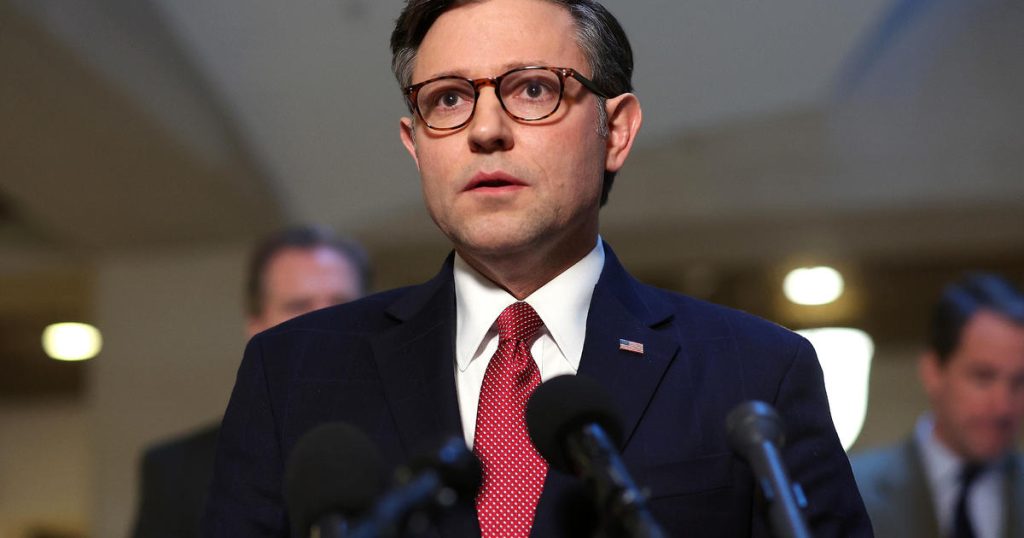House Speaker Mike Johnson is visiting Columbia University to call for the resignation of the university’s president, Minouche Shafik, in light of accusations of antisemitism amid ongoing pro-Palestinian protests on campus. Johnson, along with GOP Reps. Mike Lawler and Nicole Malliotakis, will address the rise of antisemitism on college campuses, particularly in relation to the Israel-Hamas conflict. The protests at Columbia University have been ongoing, with demonstrators occupying a section of the campus for a week, leading to tensions and concerns about free speech versus enforcing university policies.
University leaders across the country have been facing challenges in addressing antisemitism on their campuses while also upholding free speech principles. Republicans have criticized the reluctance of university presidents to address antisemitic incidents, especially in the wake of the Israel-Hamas conflict. Rep. Elise Stefanik has been leading the charge, questioning university presidents during congressional hearings and advocating for their resignation. This pressure has resulted in the resignations of university leaders at institutions like the University of Pennsylvania and Harvard, with Columbia’s president becoming the latest to testify before Congress.
Republicans, including members of New York’s congressional delegation, have called for Shafik’s resignation in response to the events at Columbia University and her testimony before Congress. They have expressed a lack of confidence in her leadership and criticized her for lax enforcement of policies and double standards. The issue of addressing antisemitism on college campuses has garnered national attention, with Johnson’s visit to Columbia University marking the latest in a series of visits by lawmakers this week. The ongoing protests and tensions surrounding the Israel-Hamas conflict have heightened concerns about the treatment of Jewish students and the need for stronger leadership in addressing these issues.
The protests at Columbia University and other campuses highlight the challenges that universities face in navigating complex issues such as antisemitism, free speech, and political activism. The demands for divestment from Israel and the resulting demonstrations have raised questions about how university administrators can protect the rights of all students while maintaining a safe and inclusive environment. The involvement of lawmakers like Speaker Mike Johnson and Rep. Elise Stefanik adds a political dimension to the debate, as Republicans push for stronger action against antisemitism on college campuses and hold university leaders accountable for their response to these incidents.
As tensions continue to rise at universities across the country, the issue of antisemitism on college campuses is becoming a focal point for lawmakers, university leaders, and students alike. The protests at Columbia University serve as a microcosm of the larger debate surrounding free speech, political activism, and campus culture. The calls for President Shafik’s resignation reflect a broader frustration with the perceived lack of enforcement of policies and the need for stronger leadership in addressing antisemitism. Moving forward, finding a balance between protecting free speech rights and preventing hate speech will be crucial in ensuring a safe and inclusive environment for all students on college campuses.


